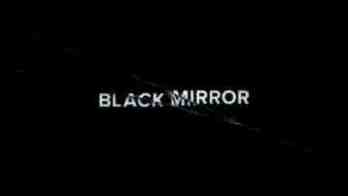I’ve never known quite what to make of Lana Del Rey. I know for sure that I love her voice, her music, and I love her all the more for the fact that she’s weathered a backlash over her looks, her past and even her name. She’s a 26 year old, sometimes-mainstream, Hollywood era-styled glamour darling whose songs are just that bit too melancholic to rest in the upper echelons of today’s brashly extroverted music chart for long.
But I have never been quite sure whether to take her at face value. Lana Del Rey is a pseudonym, a character created by the woman otherwise known as Lizzy Grant. And though the distinction between artist and creation is subtler than in the case of, say, Brian Warner / Marilyn Manson, I still believe there’s a real divide there. Which begs the question; what has Lana Del Rey been created to say?
A big part of the Del Rey package is about nostalgic Americana; references to James Dean, Coney Island, diet mountain dew et cetera get thrown into the mix throughout her debut album, Born to Die. Lana herself is a self-styled “gangster Nancy Sinatra”, her looks embodying all the dark glamour that label implies. But, on listening to her debut album, one thing jumps out at me more than anything else; all these songs are about desperate, hopeless love.
This is not necessarily a problem, of course. Love is an interesting and multi-faceted thing. But there is a definite theme here; of 15 tracks, 10 make reference to either being in love with the object of affection forever or being nothing / dead without them. 6 of these specifically refer to the other as male, although interestingly the video for “Summertime Sadness” suggests a relationship with a woman. A sampling of lyrics from this album; “Only worth living if somebody’s loving you”, “I can be your china doll if you want to see me fall”, “Love you more than those bitches before”, “No matter what you did I’d be by your side”, “We don’t stick together ‘cos we put love first”.
There is a fine line between loving devotion and blind, romantic naivety; the latter being the ideal breeding ground for abusive relationships or, at the very least, an erosion of autonomy. This is why I struggle to be entirely comfortable with some of the above lyrics. However, while they are perhaps not straight-up ironic, I take these songs to be an invitation to think a bit more about our expectations of the feminine, as skilfully unpacked by Tara Cartland in this article. This ambiguity, coupled with the narratives that Lana weaves around these concepts and her impressively versatile and emotive voice, keep me listening.
Some have taken against Lana for her eagerness to objectify herself on this album, what with the copious lyrical references to what she’s wearing and how she’s done her hair. What not so many seem to notice is the way she also objectifies men & presents an equally narrow version of masculinity as she does of femininity. Whether it’s the “tough man” with a “cocaine heart”, gold chain and cigar, the “sorta punk rock” James Dean-alike or the all-American guy who drinks beer, plays video games and holds Lana in his “big arms”, the men in her songs seem to be bound just as tightly by gendered expectations as Lana herself.
In November last year, Lana released a new edition of Born to Die (titled the “Paradise Edition”), which contained 8 new songs. While continuing the wistful, noir-ish feel of the original album, none of the new tracks portray such a deep investment in a man or the trappings of gender or romance. In a welcome development, Lana seems to have taken a more autonomous, self-aware, not to mention sexual turn. The self-referencing line “like a groupie incognito posing as a real singer / life imitates art” particularly makes me smile.
On Sunday night I was lucky enough, thanks to a kind friend with a spare ticket, to see Lana perform at the Hammersmith Apollo. Before it started, we wondered if the concert might be a bit subdued. After all, for all their brilliance Lana’s songs can’t exactly be described as rabble-rousing. I’d also heard reports that she was nervous and faltering on stage. I needn’t have worried.
Lana was a competent, practised performer, dominating the stage in a quietly assured fashion. She seemed equally confident hitting all the right notes and addressing the audience, whom she took the time to collect gifts from. The impressive ensemble of musicians behind her provided a heavier texture to many a chorus with pounding guitars and stabbing drums and the four-piece string section particularly came into their own during the spoken-word intro to “Ride”. There was also a pianist and a keyboardist.
Lana’s theatricality extended to the stage-set, which to me looked like the foyer of a sleazy, aging hotel, complete with palm trees and lion statues. An art deco-framed video screen at the back of the stage alternated between shots of Lana and evocative, pieced-together video montages.
Seeing Lana live has added another dimension to my appreciation of her music and aesthetic. I’m looking forward to hearing her forthcoming second album, which she says has “moved on to a more spiritual place lyrically […] It’s a little more stripped down but still cinematic and dark.”
I can’t wait to hear what she has to say next.









